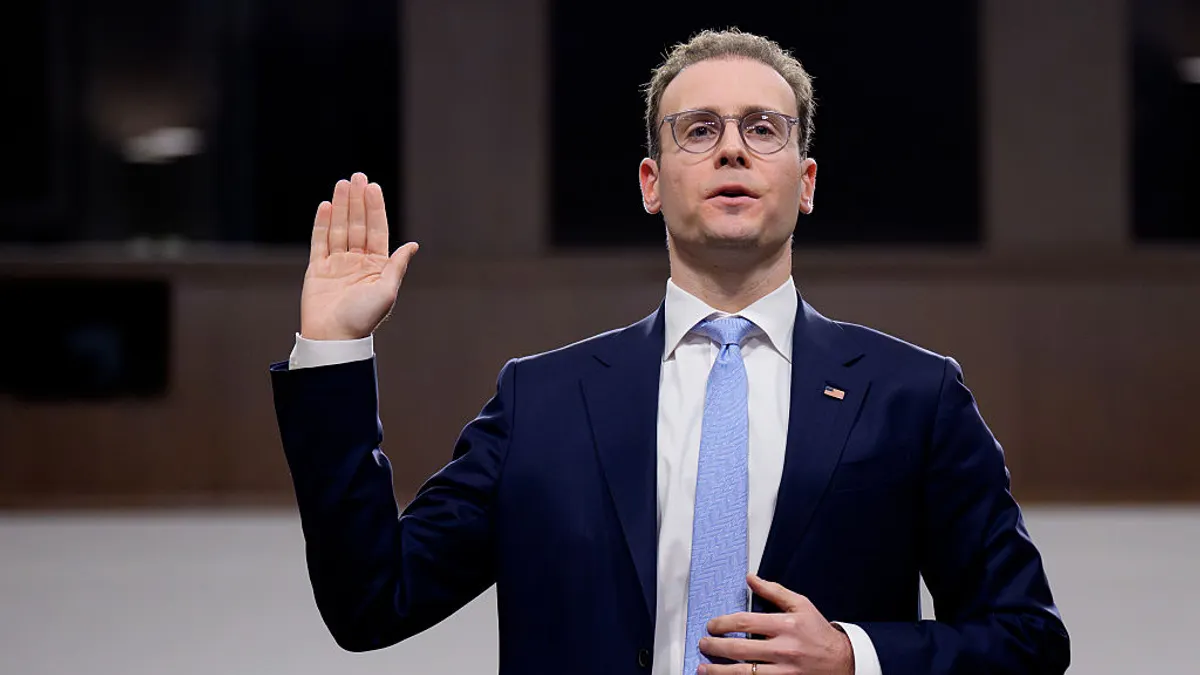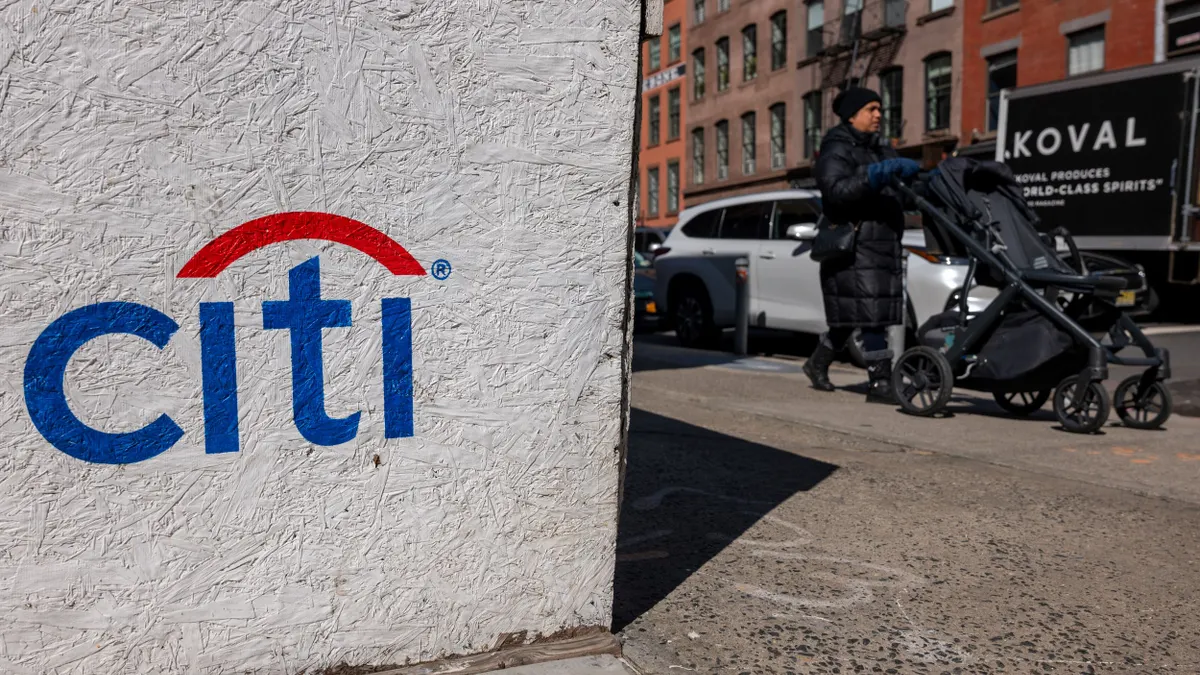An international team of employees helps Novo, a New York City-based business banking startup, stay competitive in a crowded market.
"We look at whoever can fill the job in the best way; it doesn't matter where they're from," said Tyler McIntyre, the company's co-founder. "We are one of the lucky people who have counted on H1-B [visa] workers on our team."
Novo has 15 staff members in New York and a 25-person team in India. Two of the company's U.S. employees are on H1-B visas, and three others hold other types of work visas. Recruiting worldwide lets the company fill specialized roles for which there may be no qualified local candidates.
"There's only a handful people who understand how the financial system works for some of these components," said McIntyre, adding that one of his visa workers is performing time series modeling of bank transaction data to spot abnormalities using artificial intelligence (AI). "That's a very specific use case that we're looking for."
But new visa restrictions may make these efforts more difficult.
A presidential proclamation that took effect June 24 temporarily suspends the entry of foreign workers on certain visas until the end of the year. That includes H1-B, a category that's often used by the tech industry; L-1 visas, which allow for intracompany transfers; and some other categories. The executive order, which opens the door to further changes down the road, applies to workers attempting to enter the U.S. under these categories but does not affect visa holders that are already in the U.S. or who had valid, unexpired visa stamps when the order took effect. There are exceptions for those engaged in work deemed to be in the U.S. national interest.
"It just adds complexity, where you can no longer rely on that H1-B to bring people in," McIntyre said.
Novo isn't alone among banking industry players that hire workers through the H1-B visa program. JPMorgan Chase, Citi, Goldman Sachs, Bank of America, Morgan Stanley and Wells Fargo successfully petitioned for more than 5,000 H1-B visas last year, according to data from the U.S. Citizenship and Immigration Services. More than 188,000 H1-B visas were issued in 2019.
Companies that spoke with Banking Dive said they’re still evaluating the impact of the changes. While a six-month ban may be manageable, the impact of further restrictions that may follow may be more concerning, some said.
"We don't know if they're going to extend [the proclamation], if they're going to change that, and so how that's implemented at the end or throughout the process is really going to dictate whether it affects companies in the long term," said Sang Shin, an immigration lawyer at Houston-based law firm Jackson Walker.
The order allows for further regulations to be put in place, which could result in additional restrictions.
For now, banks are taking a cautious approach. A spokesperson for Wells Fargo told Banking Dive the company is working with affected employees to help them understand and limit the impact of restrictions, while Goldman Sachs is reportedly advising employees impacted by the new curbs.
The ban highlights banks' need to ramp up strategies to garner top talent from within the U.S., said Kansas City, Missouri-based nbkc Bank, which does not have any employees on work visas.
"It just deducts one option," said Jessica Eggers, the bank's chief people officer. "[Our strategy includes] partnerships with exclusive schools, looking at referral programs and campus recruiting differently — maybe more aggressively — and we need to ensure that we provide a bigger capacity for the training and development teams."
Tech impact
While visa constraints may force some banks to adjust their staffing strategies, over a longer time frame, startups may feel a greater impact, said David Richardson, a partner at executive search firm Heidrick & Struggles.
"A lot of larger institutions are certainly not aggressively hiring lots of people, but for technology companies, many of them are still in growth mode, so it probably has a real impact on them," he said.
Corporate card startup Brex, which counts visa workers as 20% of its workforce, said it hasn't made any final decisions in response to the executive order. But CEO Henrique Dubugras said post-COVID-19, the San Francisco-based company may be more open to engaging remote international workers without having to bring them to the U.S. The company also opened an office in Vancouver, British Columbia, last year, allowing it to hire team members who couldn’t otherwise work in the U.S.
Dubugras tweeted in late June he was disappointed with measures outlined in the order and the consequences for innovation in the U.S. Regardless, he said the company would continue to sponsor visas.
"We keep our commitment to sponsoring and helping all of our employees and future employees with visas and all of their visa issues," Dubugras said, adding that Brex spent more than $700,000 on visa-related expenses over the past year and has no intention of reducing that investment.
Working with remote consultants across the globe could be a workaround if visa restrictions tighten over the long term, but that would be far from ideal, Novo's McIntyre said. When global travel resumes, it would require teams to occasionally meet in person, possibly in third countries if the U.S. is inaccessible to some workers.
"We're thinking about doing it almost accordion-style, where each of these cities like New York will still have an office, India will still have an office, but then we'll have a bunch of other distributed people across the globe. Once a quarter, everybody will come together in one place," he said.
Meanwhile, Silicon Valley Bank, which works with tech startups, expressed concern about the impact of the executive order on its clients. It was one of more than 300 companies, including Amazon and Google, to sign a letter to policymakers in May, lobbying against excessive constraints on skilled foreign worker visas.
"It is an issue we care deeply about, along with our employees and our technology, life science and healthcare clients who are job creators and active recruiters of highly-skilled talent," Linda Bader, the bank's head of talent acquisition and planning, wrote in an emailed statement.
As companies deal with the fallout of the executive order, Shin said regulations that follow could address the nature of employer-employee relationships, the definition of specialty occupations, and other moves that may make approvals harder to secure in the future.
"This is not over," he said. "This proclamation in and of itself just talks about a ban, but the rest of it talks about what could happen and what may happen, and that's the more important thing to be in tune with."



















